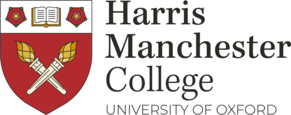The Gaskell connection
The Gaskell connection
It is fitting that the inaugural Manchester lecture should focus on the Gaskells as their name is a constant through much of our history. Holbrooke Gaskell’s portrait is on display in the Library’s Warrington Windows as a supporter of the Academy, and various Gaskells are listed as students at Manchester Academy (now HMC), others were Trustees and / or supporters of the College through regular subscriptions. The Gaskells support of the College can be traced from the late 18th century to the 20th century.
While the Gaskell name is most associated with Mrs Gaskell, our connections with her are more fragile with little evidence of her in the archive and the Library. Not for us any signed first editions or fulsome letters explaining her craft. She exists and is connected to our history through her marriage to William Gaskell who was associated with the College for over 44 years.
William Gaskell was born in Warrington in 1805, the eldest of seven children. As a Unitarian he was unable to attend Oxford or Cambridge and so he went to Glasgow University, open to nonconformist, when he was 15 graduating when he was 20. Having completed his degree he decided to study Divinity at Manchester College, then located in York. As was normal for students applying to the College, individuals needed to supply testimonials that acted as references to vouch for their character and motivation.
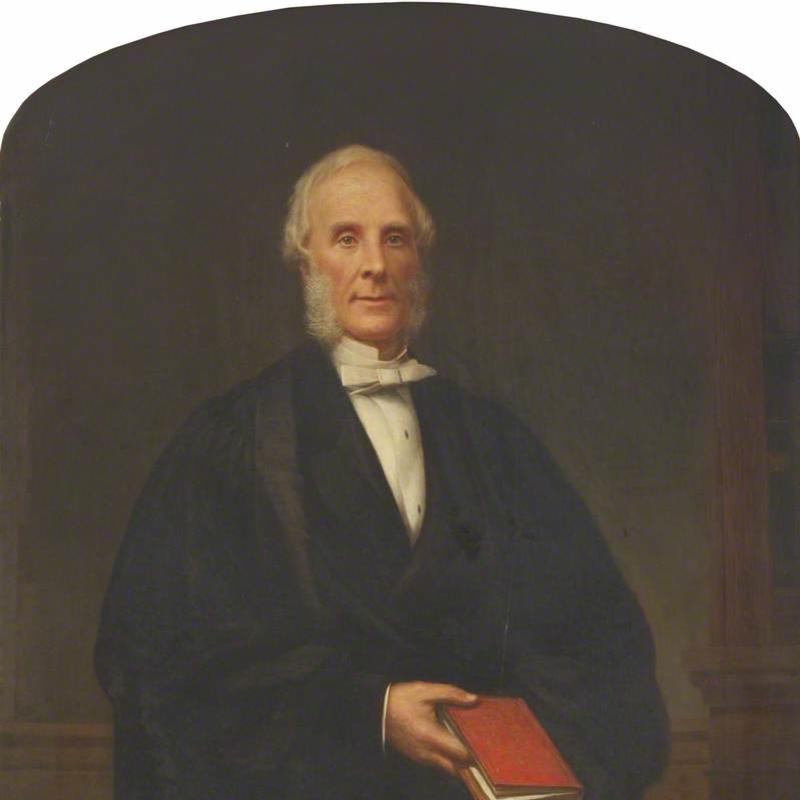
Portrait of William Gaskell by Richard Hooke. It is likely that the portrait is painted using a photograph that was projected onto the canvas.
We are fortunate to have several testimonials for William Gaskell in the archive. Unlike many of the testimonial we have the material we have associated with the Gaskell admission show a rather bad tempered exchange between the College and Holbrooke Gaskell (his uncle). An initial letter from Holbrooke Gaskell queries the fairness of the College's new entry requirements for Divinity students that they must ‘possess an ability to read the Book of Psalms in Hebrew’. The letter continues ‘not being aware of this new requirement he [William] has been studying Genesis and Ruth only in Hebrew’. It goes on to say that ‘he is studying close to this language and I have no doubt that he will be sufficiently prepared to meet the examination at York’. Alas, we do not have the College’s reply but we can assume that it did not display much flexibility as a letter dated 30 July 1825 from Holbrooke Gaskell says ‘I have received your letter 28 July this morning. As so many and such continued obstacles are set forth by the Committee against the admission of students from Glasgow, I shall recommend to my nephew not to trouble them further and to abandon the intention of studying at York academy, which I have always been adverse. When a student has graduated at Glasgow, such rigid examinations for admission to the York academy appears to me a work of supererogation.’. Notwithstanding the new regulations, William Gaskell does go onto enrol in the College in 1825 and performs well, regularly winning prizes.
After completing his studies William Gaskell was appointed to the staff at Cross Street Chapel, the sprititual and social hub for Manchester’s liberal religious Unitarians. The Chapel was nondenominational and open to all but was primarily associated with Unitarianism. It was hugely influential in the development of cultural and social initiatives in the newly industrialised town. (It plays a large part in our own history as Manchester Academy was founded by members of the Chapel and its first home was within the building itself, its first tutors both ministers at the Chapel and Committee meeting continued to be held there even when the College relocated to London and Oxford.) William Gaskell remained at the Chapel until he died in 1884.
Any bad feelings that William Gaskell had about his admittance to Manchester College seems to be entirely forgotten by the time the College returned to Manchester in 1840. He took up various positions within the College alongside his work at Cross Street. Initially he became a clerical secretary to the Trustees before being appointed to the role of Professor of History, Literature and Logic in 1846, working alongside James Martineau, John Kenrick and James Tayler. A student at this time, Henry William Crosskey, notes that there was ‘frequent personal friendly intercourse with Mrs Gaskell’ while the College was in Manchester and that students enjoyed ‘country walks with her, and frequent evenings in her company’.
For various reasons the College relocated to London in 1853. There was some opposition to the College moving again and plenty of debate as to whether it should merge with the newly formed Owens College (now Manchester University) which was founded in 1846. After extensive discussions the decision was made to move the College to London and it remained there for thirty six years. William Gaskell retained close ties to the College, becoming Chairman of the Committee in 1853 and the College Visitor from 1859. He remained dedicated to teaching, involving himself in the emerging Owens College, before founding alongside his friend and colleague Dr John Relly Beard the Unitarian Home Missionary College, later Unitarian College, Manchester. William died in 1884 and there was a warm and genuine tribute to him in the College’s Annual Address - ‘the Committee….records their profound sense of loss in the removal of Mr. Gaskell’s wise counsels and unwearied co-operation; their grateful knowledge of his invaluable labours; their warm appreciation of that happy union of courteous tact and assiduous despatch by which he smoothed the course of public business and conciliated private feeling..’.
The Gaskell / College connection doesn’t finish however with William’s death. The Misses Gaskells, Meta and Julia, two of the five daughters of William and Elizabeth Gaskell, continued to support the College after the death of their parents. They were long-time subscribers to the College and in 1908 donated a range of books from their father to the Library. Miss Meta Gaskell also left a legacy to the College when she died in 1913 which, like all their support and gifts, was warmly recognised.
Throughout Manchester College’s early peripatetic existence it was supported by generations of Unitarian families; the Gaskells, the Martineaus, the Carpenters, the Scotts and many others. When it finally settled in Oxford as a ‘Free School of Theology’, open to all and non-denominational, its Unitarian and dissenting heritage was fully acknowledged and celebrated. The Gaskells remain present in our College with their portraits on display (including a very fine portrait of William Gaskell in the Warrington room), their books in our library and their continued presence in our archives.
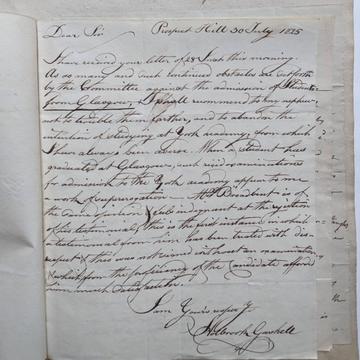
A portion of the letter from William Gaskell's uncle in which he says of Manchester College, York 'I have always been adverse'.
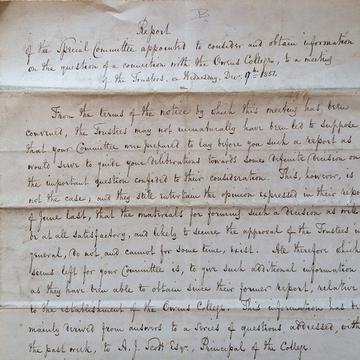
Handwritten copy of a Special Committee meeting held to discuss the possibility of Manchester College having a more formal 'connection' with the newly established Owens College (now Manchester University).
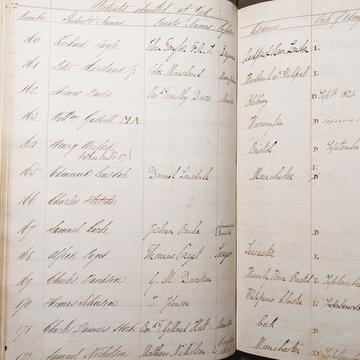
The entry for William Gaskell in the Manchester College York admissions register for 1825, listing his home residence as being in Warrington.
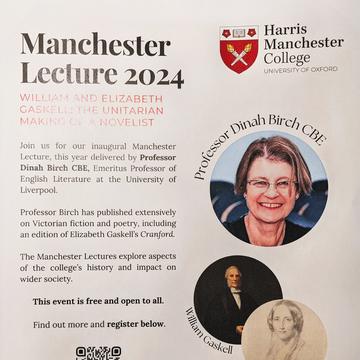
Poster advertising the inaugural Manchester Lecture February 2024. The lecture will be given by Professor Dinah Birch CBE on William and Elizabeth Gaskell: The Unitarian making of a novelist. The Manchester Lecture series will explore aspects of the College's history.
